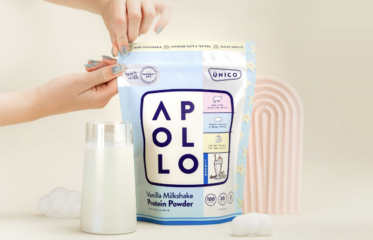Precision Fermentation Market Opportunity and Consumer Attitudes Measured in Hallmark Study from The Hartman Group

The research, commissioned by Perfect Day and Cargill, finds 2 in 3 Americans believe we need food that uses fewer resources like energy, water, or carbon
March 7, 2023 — The Hartman Group, a leader in food and beverage research and consulting, in partnership with precision fermentation leaders Perfect Day and Cargill, has released a new white paper, Fermenting the Future: The Growing Opportunity for Products Made with Precision Fermentation that measures current consumer attitudes towards and perceptions of food and technology, and how these inform purchase intent and interest in the rapidly growing precision fermentation industry.
This joint report surveyed more than 2,500 U.S. adults and found that 77% of those familiar with precision fermentation say they are likely to purchase products made with its ingredients. Precision fermentation uses yeast or micro-organisms that are enhanced through science to convert minerals or plant matter into ingredients such as proteins, sweeteners and Vitamin C.
Results indicated that a majority of consumers have favorable opinions about the benefits that science and technology can have in our food system. Among these, younger consumers expressed the most enthusiasm for new technologies like precision fermentation and want to support companies that align with their own values around the environment and animal welfare. These consumer attitudes align with the findings that 69% of Americans believing we need to find ways to meet our society’s nutritional needs with fewer resources like energy, water, or carbon.
“We are excited to partner with The Hartman Group on this research to help us identify where consumers stand in relation to transformative food technologies like precision fermentation. It illuminates how companies like ours can meet them where they are with education and tasting opportunities,” said Allison Fowler, CMO of Perfect Day. “The data validates that most Americans share our mission to create a kinder and greener future and that consumers are open to learning more about the positive impacts this will have on the environment.”
Among the key findings from the research, this white paper revealed that:
- The U.S. precision fermentation market is projected to grow to over 132 million adults by 2027.
- Currently 40% of adult consumers are ready to give precision fermentation a try or can be easily brought into the fold with information about benefits, translating into an approximate market size of over 90 million adults today.
- Consumers are comfortable with science and technology in our food system as a climate change solution.
- 61% believe science and technology are our best hope to address climate change
- 3 in 5 Americans believe science and technology can make food more sustainable and 56% say it can make food more healthy
- More than half (52%) of Americans are willing to drastically change their lifestyle to be more environmentally friendly
- Millennials and Gen Z are the most eager to be early adopters of food innovation, including precision fermentation.
- 60% of Millennials and 55% of Gen Z actively seek out food and beverage products from companies that prioritize sustainability and animal welfare
- Upon learning more about this process, 85% of Millennials and 84% of Gen Z say they would be likely to purchase products containing ingredients made with precision fermentation
“While the use of precision fermentation to create ingredients has been around for decades, the ways in which fermentation is now being used are generating a lot of the recent buzz,” says Mark Fahlin, business development manager for Cargill, a pioneer in fermentation technology. “For many decades, fermentation has been used to make ingredients, from Vitamin C to dairy cultures to citric acid – but it’s not widely known. However, I think that’s about to change, and consumers are going to start learning more about all that these ingredients can do.”
“This research revealed an acceleration of the trends that we’ve been following in the food industry,” said Laurie Demeritt, Chief Executive Officer of The Hartman Group, adding “the data indicates we’re at the precipice of a watershed moment in food technology, and it’s an exciting time for those of us who study consumers to see how rapidly their behaviors and aspirations are evolving.” To support this white paper, The Hartman Group will also launch a series of webinars and podcasts that share key insights and implications from this research, hosted by their experts, which will be available to the public for free. Register for the first webinar on March 21 here.
This data validates the recent momentum Perfect Day has spearheaded in the precision fermentation industry. Earlier this month, Perfect Day and eight other precision fermentation companies launched the Precision Fermentation Alliance, a new industry group to help build awareness and understanding of precision fermentation technology and its benefits for governments, businesses, manufacturers, and the greater public. Last year, Perfect Day also announced the new brand identity of its enterprise biology business, nth Bio, through which it offers Perfect Day’s precision fermentation expertise and technology services to companies across the globe who share its kinder, greener mission and empowers them to extend the positive impact of precision fermentation, and other biotech innovation, into new areas of the food system and beyond.
To learn more about this research and download the complete white paper, please visit: https://www.hartman-group.com/precision_fermentation.
About The Hartman Group
Since 1989, The Hartman Group has been translating consumer behavior and food culture into strategic growth opportunities for our clients. We are 100 percent focused on the food and beverage marketplace and our clients’ interests. We deliver smart, strategic and tactical advice, engaging collaborative experiences and comprehensive research and analysis that lead to positive outcomes for our clients. For more information, visit www.hartman-group.com.
About Perfect Day, Inc.
Founded in 2014 by Ryan Pandya and Perumal Gandhi, Perfect Day is on a mission to create a kinder, greener tomorrow through the harmony of science and nature. Leveraging expertise across biology, food innovation, and consumer products, Perfect Day supports companies in developing, scaling, and commercializing next-generation products that satisfy market demands and champion a path toward a sustainable future.
The company’s flagship product, the world’s first precision-fermented protein, debuted in 2020 and today can be found in animal-free ice creams, cream cheese, baked goods, and sports nutrition products across the U.S., Hong Kong, and Singapore. Instead of relying on cows, Perfect Day utilizes microflora to create proprietary animal-free milk protein. Perfect Day’s protein can be used across a range of products to deliver the same taste and texture while supporting the planet. An ISO compliant, third-party reviewed life cycle assessment (LCA) found that Perfect Day’s whey protein reduces blue water consumption by up to 99%, greenhouse gas emissions by up to 97%, and non-renewable energy use by up to 60%, when compared to conventional production methods.
To learn more, visit perfectday.com or follow along on Facebook, Twitter, Instagram, and LinkedIn.
About Cargill
Cargill helps the world’s food system work for you. We connect farmers with markets, customers with ingredients and families with daily essentials—from the foods they eat to the floors they walk on. Our 160,000 team members around the world innovate with purpose, empowering our partners and communities as we work to nourish the world in a safe, responsible, sustainable way.
From feed that reduces methane emissions to waste-based renewable fuels, the possibilities are boundless. But our values remain the same. We put people first. We reach higher. We do the right thing. It’s how we’ve met the needs of the people we call neighbors and the planet we call home for 157 years—and how we’ll do so for generations to come. For more information, visit Cargill.com and our News Center.
News Releases

Perfect Day and Unilever Launch New Breyers Lactose-Free Chocolate

Perfect Day Accelerates Next Chapter of Impact with Pre-Series E of up to $90 Million and Leadership Updates
